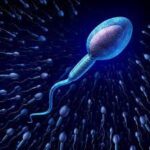About Course
Infertility is referred as one among the life’s greatest stresses, similar in intensity of a life-threatening illness. Infertility, usually defined in the biomedical context as the inability to conceive after 12 months of regular unprotected intercourse. The definition of reproductive health given by the World Health Organization (WHO) also has a broad scope, suggesting that multi factorial environmental inputs may introduce disorders of an organic, functional, or psychological nature. WHO has acknowledged the significance and magnitude of infertility as a public health issue of global concern due to its alarming growth rate, especially in developing countries. In the global scenario the findings of a recent review indicate 9% prevalence of infertility. Nearly 56 million couples are seeking medical treatment for infertility. In India nearly 30 million couples suffer from infertility making the incidence rate up to 10%. These statistics shows that individuals experiencing infertility makeup a considerable proportion of our society.
When we speak about “male infertility” in specific is a multi factorial syndrome. The major identified causes of infertility are listed as testicular failure, obstruction, cryptorchidism, low semen volume, sperm agglutination, idiopathic infertility, varicocele, erectile or ejaculatory dysfunction, abnormal viscosity, and endocrine disorder, high density of sperm, congenital abnormalities and environmental causes. A few scholars opines that 50% cases of male infertility are idiopathic. At this scenario a holistic understanding of the problem and management is the only way to tackle the same. Ayurveda explains the numerous etiological factors of infertility such as Santarpananimittaja, Rasapradoshaja, Shukrapradoshaja, Dhvajabhanga, Marmaccheda, Shukrakshaya, Shukravahasrotoviddha and Bijopaghataja. Ayurveda has always shown an edge over all other systems of medicine in managing male infertility. Vajeekarana is an exclusive branch of Ayurveda which offers various solutions for improving quality of sperms as well as enhancing sexual performance.
Program Objectives:
Certificate Programme in Male Infertility Management (CMIM) will provide a basic knowledge set appropriate for the Ayurveda physicians who wish to work in the area — the treatment of the infertile male, provide training in the assessment of parameters of male reproductive function, and assist clinicians in identifying strategies for the management of male infertility through classical ayurvedic diagnostic approach on shukradushti incorporating integrated approach of advanced Semen analysis. It also open vista on various aspects of Vajeekarana chikitsa with special focus on shodhana chikitsa, Rasoushadha chikitsa and couple counseling.
At the end of this educational activity, participants should be able to:
- Review the physiology and pathophysiology of male reproductive function.
- Identify basic and advanced evaluation of reproductive function on Ayurvedic and modern parlance.
- Assess appropriate treatment modalities for male infertility.
- Analyze present strategies and research updates.
Program Duration and Structure:
Four days continuous class, seven credit hours daily

